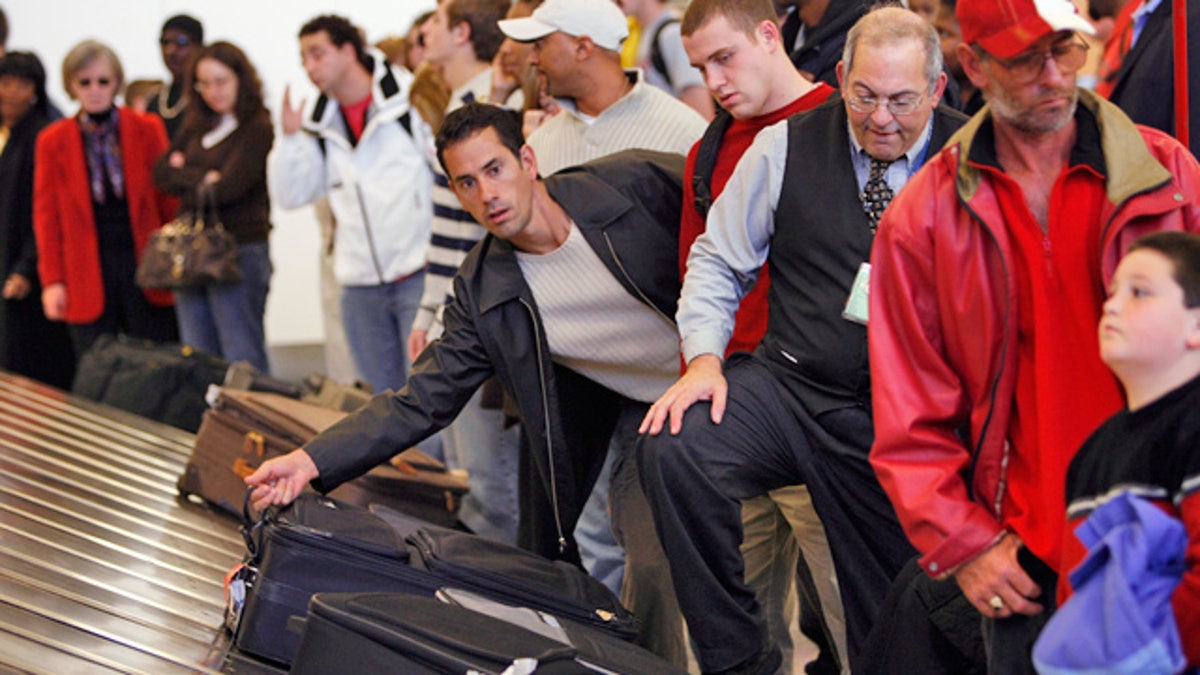
Passengers may have to compete with slightly fewer people getting to the airport this Thanksgiving, but flights will be as full as ever, airline industry officials said Thursday.
The Air Transport Association's annual Thanksgiving travel forecast predicts 37,000 fewer passengers per day — about a 2 percent drop — over the holiday period compared to last year. But U.S. carriers have reduced capacity to match demand and offset higher costs, the association said. That means few empty seats.
About 23.2 million air travelers will fly on U.S. carriers' domestic and international routes during a 12-day period surrounding the holiday, down from the 23.6 million people who flew over the Thanksgiving period in 2010, said the association, which represents leading carriers. The busiest air-travel days for the period are expected to be Sunday, Nov. 27 and Monday, Nov. 28, followed by Friday, Nov. 18.
The 2011 forecast anticipates that total air travel volumes for the period will be 12 percent less than the peak volumes reached in the same period in 2006. "While demand is down from last year and remains well below the 2006 peak, passengers still should expect full flights during the Thanksgiving holiday travel season as airlines have begun to reduce capacity and limit the number of seats available for sale due in part to rising cost pressures," John Heimlich, the association's chief economist, said.
The cuts are expected to continue through the winter, he said. A tally of publicly reporting U.S. passenger airlines shows a net income of $913 million for the first nine months of 2011, the association said. While operating revenues rose $11.7 billion, or 12.7 percent, operating expenses also rose $13.8 billion, or 16 percent. That reduced net income 66 percent from the same period in 2010, and resulted in a slender profit margin of .9 percent, the association said.
A key factor was a 38 percent rise in fuel costs during the period, Heimlich said. "Higher costs have outpaced higher revenues thus far this year, and the industry's razor-thin profit margin means that airlines are keeping less than one penny in profit for every dollar in revenue," he said.